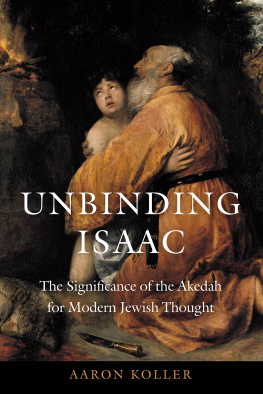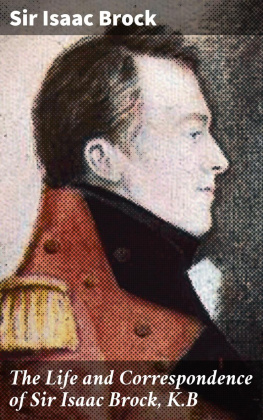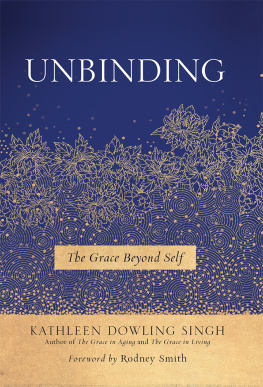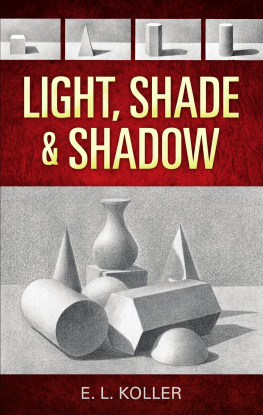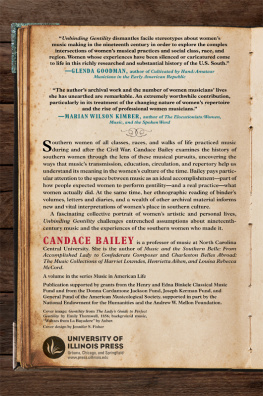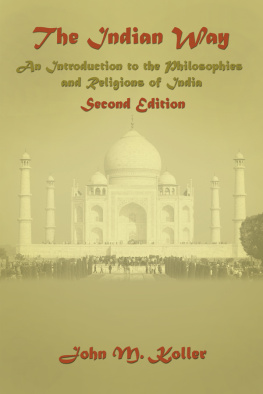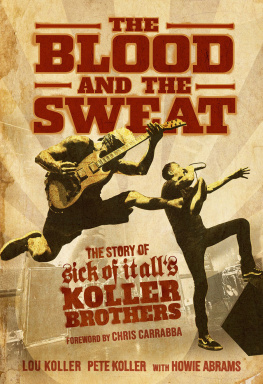Koller Aaron J. - Unbinding Isaac
Here you can read online Koller Aaron J. - Unbinding Isaac full text of the book (entire story) in english for free. Download pdf and epub, get meaning, cover and reviews about this ebook. publisher: University of Nebraska Press, genre: Religion. Description of the work, (preface) as well as reviews are available. Best literature library LitArk.com created for fans of good reading and offers a wide selection of genres:
Romance novel
Science fiction
Adventure
Detective
Science
History
Home and family
Prose
Art
Politics
Computer
Non-fiction
Religion
Business
Children
Humor
Choose a favorite category and find really read worthwhile books. Enjoy immersion in the world of imagination, feel the emotions of the characters or learn something new for yourself, make an fascinating discovery.
- Book:Unbinding Isaac
- Author:
- Publisher:University of Nebraska Press
- Genre:
- Rating:4 / 5
- Favourites:Add to favourites
- Your mark:
- 80
- 1
- 2
- 3
- 4
- 5
Unbinding Isaac: summary, description and annotation
We offer to read an annotation, description, summary or preface (depends on what the author of the book "Unbinding Isaac" wrote himself). If you haven't found the necessary information about the book — write in the comments, we will try to find it.
Unbinding Isaac — read online for free the complete book (whole text) full work
Below is the text of the book, divided by pages. System saving the place of the last page read, allows you to conveniently read the book "Unbinding Isaac" online for free, without having to search again every time where you left off. Put a bookmark, and you can go to the page where you finished reading at any time.
Font size:
Interval:
Bookmark:
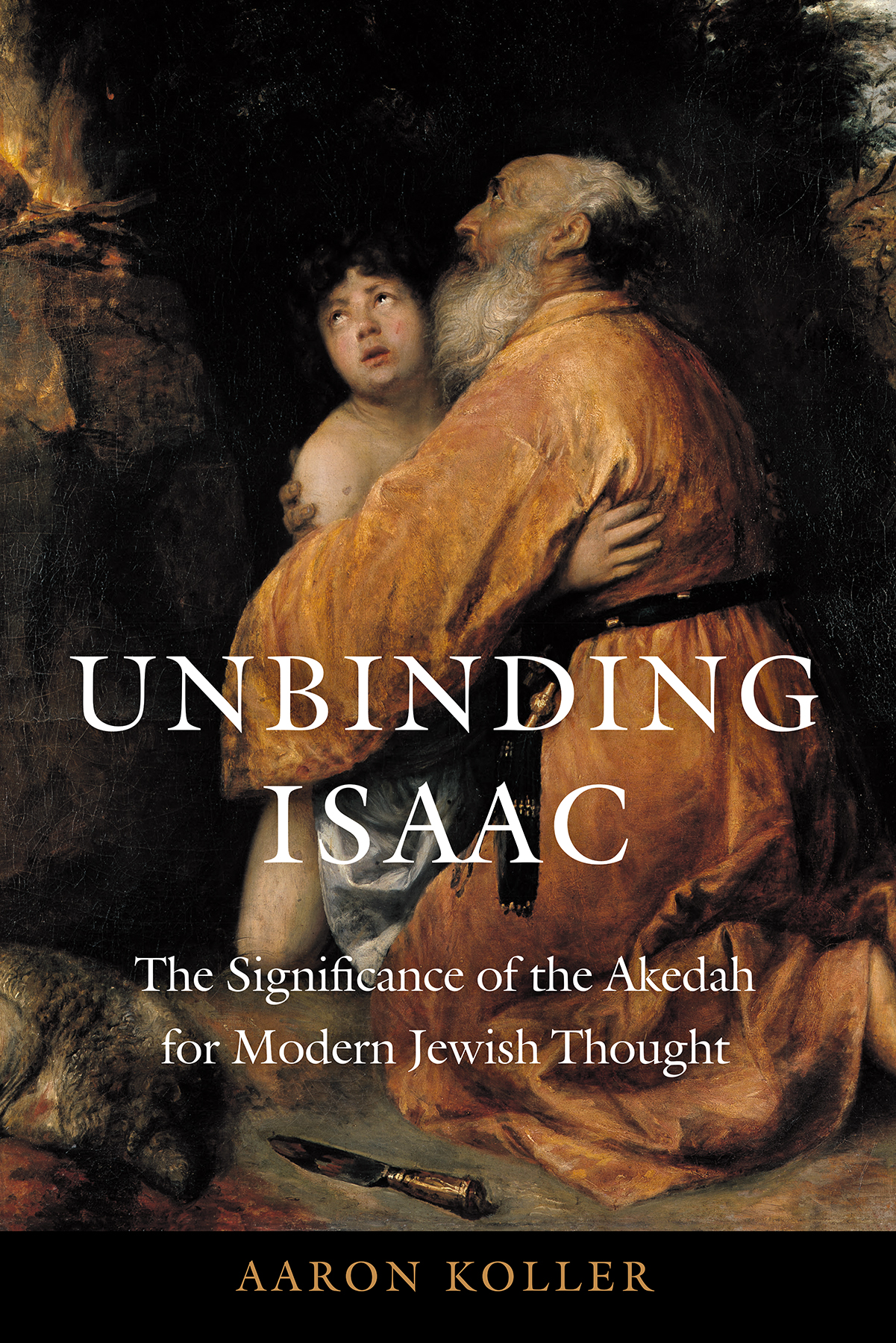
The book is a pleasure to read, but no less learned for that. There is great depth of learning on show here, but Koller manages somehow to wear that learning relatively lightlyan impressive feat.
Daniel Rynhold, professor of modern Jewish philosophy, Yeshiva University
One would have thought that centuries of dissecting twenty-odd verses of Genesis from every perspective imaginable have exhausted their meaning. Yet Koller, with his erudite grasp of both biblical literature and the longue dure of the Jewish interpretive tradition, unbinds the Akedah to reveal its philosophical and theological grandeur. As he unravels it, he wrests it from the grip of the dominant and dangerous interpretation that faith justifies violence and redirects our attention to the message that resounds in Gods warning to Abraham: Do not lay a hand on the boy!
James A. Diamond, Joseph and Wolf Lebovic Chair of Jewish Studies, University of Waterloo
Aaron Koller leads his readers on a journey through a stunningly wide range of materialancient, medieval, and modern; Jewish and Christian; Hasidic, Misnagdic, and secular; some scholarly, some poetic, some dug up by archaeologistswithout ever losing focus or clarity. Wearing his massive learning lightly, he helps readers learn from these sources even as he shows them how to critique them on ethical and intellectual levels. His own interpretation of this deeply (and troublingly) influential narrative is at once respectful of the biblical text and religiously sensitive.
Benjamin D. Sommer, professor of Bible and ancient Semitic languages, Jewish Theological Seminary, and winner of the Goldstein-Goren Prize for Best Jewish Thought
Kollers bold claim that one persons religious fulfillment cannot come through harm to another stands alone as a textually rooted, morally compelling vision for sincere faith in a modern world that too often finds form in false fundamentalisms. Unbinding Isaac should be required reading for all of us seeking the voice of the ethical imperative in religious community.
Yehuda Kurtzer, president, Shalom Hartman Institute of North America
Amid countless commentaries on the Akedah, Aaron Kollers powerful, gracefully written work is brilliant, refreshing, and new. Harvesting generations of scholarship in Bible, rabbinics, and Jewish thought, medieval and modern, he deftly inlays their voices in their own times and places as they speak to us. His reading of the Akedah is timeless and urgently timely. Respectfully critiquing prevailing interpretations, he daringly proposes that the Akedah teaches ethics not as a submission to the holy but as the deepest teaching of theology.
Yehudah Mirsky, professor of Near Eastern and Judaic studies at Brandeis University and author of Rav Kook: Mystic in a Time of Revolution
The story of the Akedah in Genesis 22 raised doubts and confusion in ancient times. How and why did God command Abraham to slaughter his son? What is the relationship between this story and the practice of child sacrifice that was common in the biblical period, in Israel and in some of the neighboring people?...
Most of the time, scholars who have dealt with this text did so from one perspective, depending on their area of expertise: biblical scholarship, the study of antiquity, the study of medieval Jewish thought, or scholarship on modern philosophy.
The impressive book by Aaron Koller is unique in that it combines all of the perspectives mentioned above in a single package. In this way, the story of the Akedah is newly illuminated in a particularly exciting and convincing way.
Israel Knohl, Yehezkel Kaufmann Professor of Bible, Hebrew University of Jerusalem
Aaron Koller

The Jewish Publication Society | Philadelphia
University of Nebraska Press | Lincoln
2020 by Aaron Koller
Cover designed by University of Nebraska Press; cover image: Herzog Anton Ulrich-Museum Braunschweig, Kunstmuseum des Landes Niedersachsen. Photo: Museum.
Acknowledgments for the use of copyrighted material appear in , which constitutes an extension of the copyright page.
All rights reserved. Published by the University of Nebraska Press as a Jewish Publication Society book.
Library of Congress Cataloging-in-Publication Data
Names: Koller, Aaron J., 1978 author.
Title: Unbinding Isaac: the significance of the Akedah for modern Jewish thought / Aaron Koller.
Description: Lincoln: University of Nebraska Press, [2020] | Includes bibliographical references and index.
Identifiers: LCCN 2019041688
ISBN 9780827614734 (hardback)
ISBN 9780827618435 (epub)
ISBN 9780827618442 (mobi)
ISBN 9780827618459 (pdf)
Subjects: LCSH : Isaac (Biblical patriarch)Sacrifice. | Bible. Genesis, XXII, 119Criticism, interpretation, etc.
Classification: LCC BS 1238. S 24 K 65 2020 | DDC 222/.1106dc23
LC record available at https://lccn.loc.gov/2019041688
The publisher does not have any control over and does not assume any responsibility for author or third-party websites or their content.
To my parents,
Elayne and Jerry Koller
The childs speech outside comes either from his father or from his mother.
(Bavli Sukkah 56b)
The work on the material in this book began back in 20089, when I taught a class on Jewish biblical interpretation at Drisha in New York City. For part of the year, we studied the aqeda as a test case, investigating the ways the text had been understood by classical and modern interpreters. Kierkegaard was not on the reading list, but he was on my mind, and over the course of the year, some of the core ideas now in this bookmost centrally, Maimonides interpretation of the textbegan to take shape.
Over the decade since then, this work has taken various shapes and forms. I am most profoundly indebted to my good friend Elie Jesner, who has been a true avruta for nearly twenty-five years, distilling his erudition and humanism in ways that have constantly enriched me. On the pragmatic level, he read drafts of a number of chapters and suggested numerous improvements and corrections, sharing his knowledge of both classical Jewish texts and modern philosophy. My colleague Dr. Daniel Rynhold improved this work with many suggestions and critiques, and also provided some important references; for other references, I am indebted as well to Dr. Joshua Feigelson. Dr. Eliyahu Stern and Dr. Jess Olson responded to some of my questions on modern intellectual history and Jewish thought, and helped me think through some of the issues in the intellectual history of the time. A Kierkegaard reading group in 2016, in which Dr. Sam Fleischacker and Dr. Viren Murthy participated, was instrumental in broadening my perspective on Kierkegaard and his thought.
This work began in the classroom and continued to a large extent in various classrooms. My students in Drisha were an ever-eager group of learners and critics, from whom I learned at least as much as they learned from me. I have, more recently, taught an undergraduate course on the aqeda (a spelling henceforth abandoned) at Yeshiva University. The rigorous environment of a YU classroom ensured that every analysis had to be worked out in great detail, distilled to its essence, and then analyzed from every angle. The students in each class were scintillating conversation partners, and also produced remarkably high-quality work of their own, which in turn informed my own thinking. It is a pleasant obligation to single out papers by Tzvi Cantor on Rav Shagars essay discussed in chapter 1, and Noah Marlowe on Rabbi Norman Lamms sermon, discussed in chapter 7.
Next pageFont size:
Interval:
Bookmark:
Similar books «Unbinding Isaac»
Look at similar books to Unbinding Isaac. We have selected literature similar in name and meaning in the hope of providing readers with more options to find new, interesting, not yet read works.
Discussion, reviews of the book Unbinding Isaac and just readers' own opinions. Leave your comments, write what you think about the work, its meaning or the main characters. Specify what exactly you liked and what you didn't like, and why you think so.

